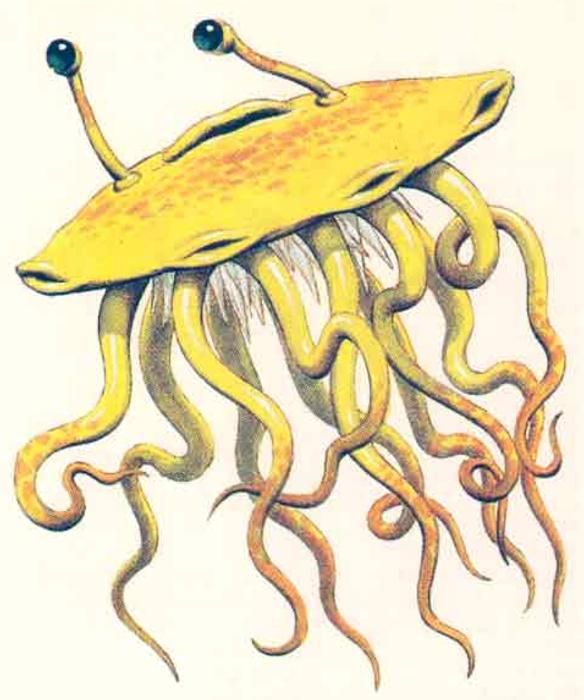What are Flumphs?
Flumphs are aberrant creatures that resemble flying jellyfish. They have round, flat bodies with eyestalks, tentacles, and spikes. They can fly by sucking in air through their tops and blowing it out through their bottoms. They can also glow in different colors depending on their mood.
Flumphs are very intelligent and curious, but they cannot speak with their mouths. They use a unique sign language and telepathy to communicate. They feed on psionic energy from other aberrations, such as mind flayers and aboleths. They are also good-aligned and peaceful, seeking to learn and share their knowledge with other benevolent beings.
What are Monastic Flumphs?
Monastic flumphs are a rare and remarkable type of flumphs that have mastered the art of spellcasting. They can cast divine spells as if they were clerics of the same level as their hit dice. They have a deep connection to their faith and their cloister, which is their home and sanctuary.
A cloister is a group of flumphs that live together in harmony, sharing their knowledge and worshipping mysterious gods that are unknown to other races. A cloister can be found in a large cavern in the Underdark, or in a swamp or grassland, where they build a large, nest-like structure out of grass and mud. The inside of a cloister is adorned with beautiful paintings, made by flumphs using their tentacles and natural pigments.
Each cloister has a leader, called an abbot flumph. The abbot is the most wise and powerful flumph in the cloister, and has the final say in all matters. The abbot is assisted by one prior flumph for every six flumphs in the cloister. The prior flumph is the second-in-command, and helps the abbot with administrative and spiritual duties. The rest of the flumphs are monks flumph, who dedicate themselves to learning, meditation, and service. They also help to protect the cloister from any threats.
How do Monastic Flumphs Reproduce?
Monastic flumphs reproduce by a process called budding, which occurs about every two years. An abbot flumph grows
1d8 tiny buds on its underside, each one a new abbot flumph. The buds detach from the parent abbot flumph after about three months, when they reach a diameter of two inches. They then grow rapidly to adult size within a month, reaching a diameter of two feet.
Monastic flumphs have a lifespan of about 20 years, but some may live longer if they have access to abundant psionic energy.
How do Monastic Flumphs Interact with Other Creatures?
Monastic flumphs are not aggressive creatures, but they have to hunt for food and defend themselves from danger. They feed on small animals, such as rats, lizards, and frogs, that dwell in the Underdark. They also absorb psionic energy from nearby sources, such as aboleths, gith, and mind flayers.
Monastic flumphs prefer to avoid confrontation with larger creatures, but they have a way of repelling them if they get too close. They can spray a foul-smelling liquid from an opening on their front side, which covers anyone in a 15-foot cone in front of them. The liquid smells so bad that it sickens the coated creature and anyone within 5 feet of it. The only way to get rid of the odor is to spend a short rest bathing in water, alcohol, or vinegar.
Monastic flumphs are also kind and generous to other good-aligned creatures, especially those who share their curiosity and thirst for knowledge. They can speak and understand common or another language, which helps them to study and share their knowledge. They are also adept at casting divine spells, which they use for healing, protection, and guidance.
Monastic flumphs sometimes encounter common flumphs near their cloisters. The common flumphs respect and admire the monastic flumphs, and may ask them for healing or guidance. The monastic flumphs are usually kind and generous to their common kin, but they may also test their faith and intelligence before offering their aid.
Conclusion
Monastic flumphs are extraordinary creatures that live in harmony with their cloisters and their gods. They are intelligent and curious, seeking to learn and share their knowledge with other benevolent beings. They are also peaceful and avoid conflict, preferring to hunt small animals or feed on psionic energy from nearby sources.
Monastic flumphs are rare and remarkable creatures that deserve respect and admiration from anyone who encounters them. They are a shining example of how good can thrive even in the darkest places of the world.
